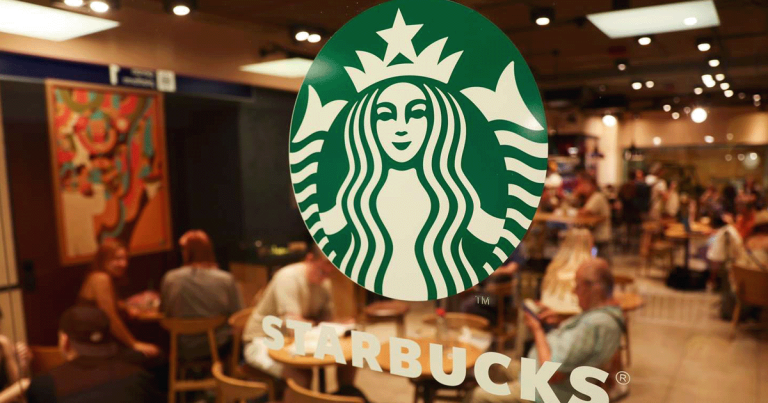
Remember 2018? That’s when Starbucks, caught in the crosshairs of progressive outrage after a Philadelphia incident, decided to transform its stores into public spaces where anyone could loiter or use restrooms without making a purchase.
Former chairman Howard Schultz proclaimed they didn’t want anyone feeling “less than” if refused access.
From “Progressive” to Predictable Disaster
Fast forward to 2025, and the results of this progressive experiment are in. After watching their bathrooms predictably transform into drug dens and their cafes into unauthorized shelters, Starbucks is finally putting paying customers first.
The toll of this failed experiment wasn’t just theoretical. In 2022 alone, Starbucks was forced to shutter 16 stores – primarily in progressive strongholds like Seattle and Los Angeles – due to rampant drug use and safety concerns. Six stores in Seattle and six in Los Angeles closed their doors permanently, leaving employees jobless and neighborhoods with fewer safe gathering spaces.
“We want everyone to feel welcome and comfortable in our stores,” says Starbucks spokesperson Jaci Anderson, carefully tiptoeing around the obvious: letting everyone in meant paying customers couldn’t feel comfortable anywhere.
Workers Pay the Price for Progressive Dreams
Perhaps no one suffered more from this misguided policy than Starbucks’ own employees. Baristas found themselves dealing with situations far beyond their job descriptions – from cleaning up drug paraphernalia to confronting aggressive non-customers who treated stores like personal living rooms.
“We didn’t sign up to be social workers or security guards,” said one former Seattle location manager who spoke on condition of anonymity. “Every day brought new challenges that had nothing to do with making coffee. It was exhausting and often scary.”
Union representatives report that worker complaints about safety issues doubled between 2019 and 2024. Meanwhile, employee turnover rates at urban locations skyrocketed, with some stores seeing complete staff turnover multiple times per year.
The Financial Wake-Up Call
While Starbucks initially painted their open-door policy as enlightened corporate leadership, the bottom line told a different story. Regular customers began avoiding certain locations, particularly in urban areas where the policy’s impact was most severe. Drive-through locations saw increased traffic as customers sought ways to avoid entering stores altogether.
Business analysts estimate the policy cost Starbucks millions in lost revenue, property damage, increased security costs, and higher insurance premiums. The company’s stock price suffered too, with investors growing increasingly concerned about the sustainability of prioritizing social justice over sound business practices.
Common Sense Makes a Comeback
From KOMO News:
If you want to hang out or use the restroom at Starbucks, you’re going to have to buy something.Starbucks on Monday said it was reversing a policy that invited everyone into its stores. A new code of conduct – which will be posted in all company-owned North American stores – also bans discrimination or harassment, consumption of outside alcohol, smoking, vaping, drug use and panhandling.
Starbucks spokesperson Jaci Anderson said the new rules are designed to help prioritize paying customers. Anderson said most other retailers already have similar rules.
The new policy, rolling out across North American stores January 27, reads like a return to basic business principles that somehow became controversial:
- Must make a purchase to use facilities
- No drug use or outside alcohol
- No panhandling
- No harassment or discrimination
- Violators will be asked to leave, with law enforcement contacted if necessary
In other words, exactly how most businesses operated before corporate America decided to experiment with social justice.
When “Inclusion” Excludes Paying Customers
Lost in the original controversy was a simple truth: making spaces “inclusive” for non-customers often means excluding paying customers. While progressive activists celebrated Starbucks’ 2018 decision, regular customers increasingly found themselves avoiding certain locations, leading to store closures that hurt local communities and workers.
The impact was particularly severe in urban areas already struggling with the consequences of progressive policies. Those Seattle store closures weren’t just statistics – they represented lost jobs, lost tax revenue, and one fewer safe space for law-abiding citizens to enjoy their overpriced lattes in peace.
Starbucks isn’t alone in learning these expensive lessons. Other major retailers who embraced similar policies have faced comparable challenges. Many have quietly reversed course, though few have done so as publicly as Starbucks.
Conservative business leaders have long warned that sacrificing basic business principles on the altar of social justice would eventually backfire. “You can’t run a successful business if you’re more focused on virtue signaling than serving paying customers,” notes Richard Anderson, CEO of Capital Market Advisors.
The Community Impact
Perhaps most ironically, the communities these policies claimed to help often suffered the most. When Starbucks locations close, neighborhoods lose more than just a coffee shop – they lose jobs, tax revenue, and safe gathering spaces. Property values typically decline, and other businesses often follow suit, creating a downward spiral in already struggling areas.
“Every time a business closes because of these policies, it’s another nail in the coffin for urban communities,” explains Dr. Sarah Martinez, urban development researcher. “The road to urban decay is paved with progressive intentions.”
Key Takeaways:
- Progressive policies destroyed customer experience and endangered employees.
- Starbucks ended its open-door policy, requiring purchases to use bathrooms.
- Liberal cities’ permissive attitudes led directly to store closures.
- The reversal marks more than just a policy change – it’s an admission that sometimes traditional business practices were right all along.
Sources: KOMO, Chronicle Live, AS USA


